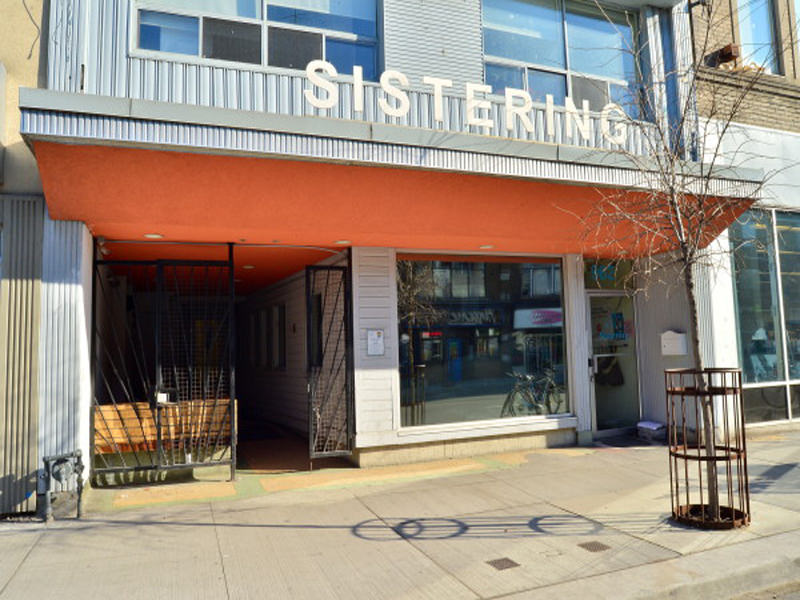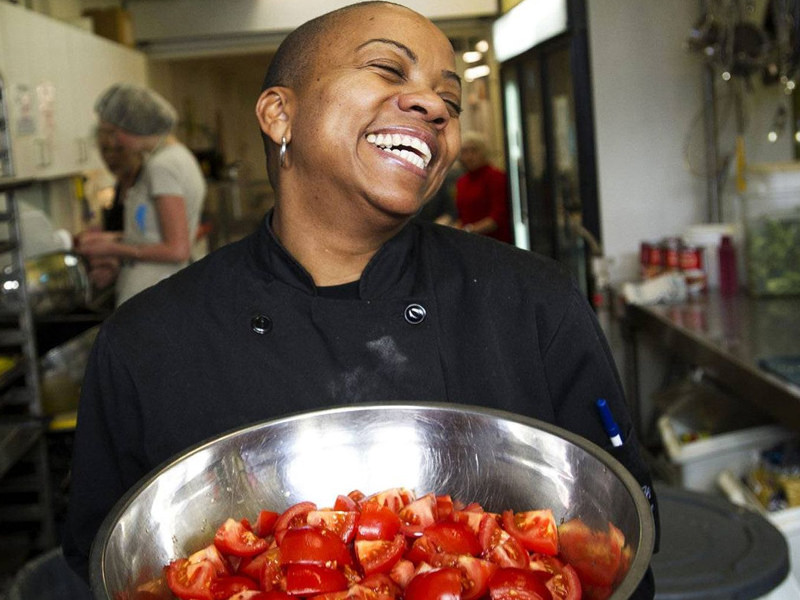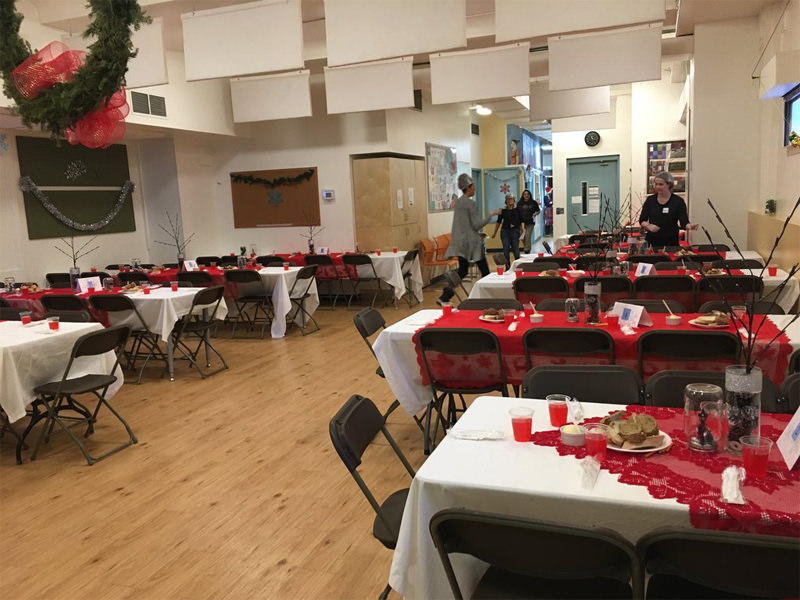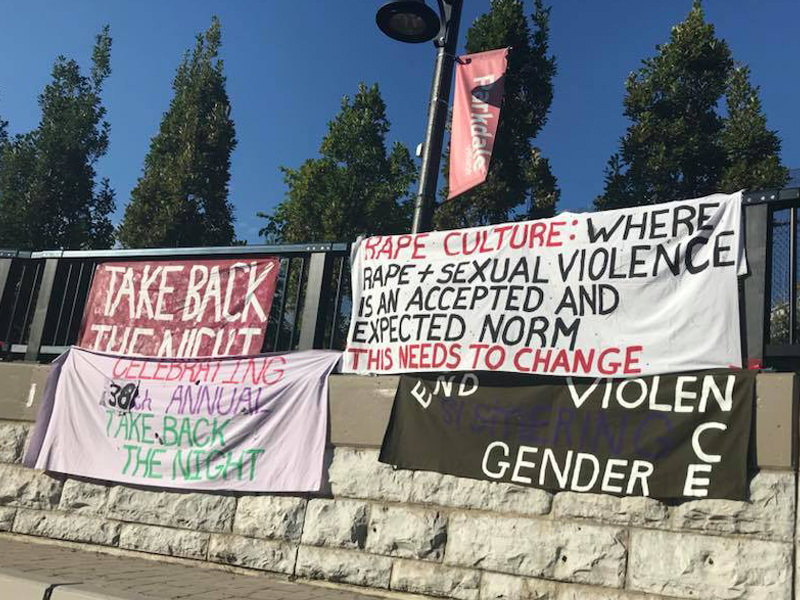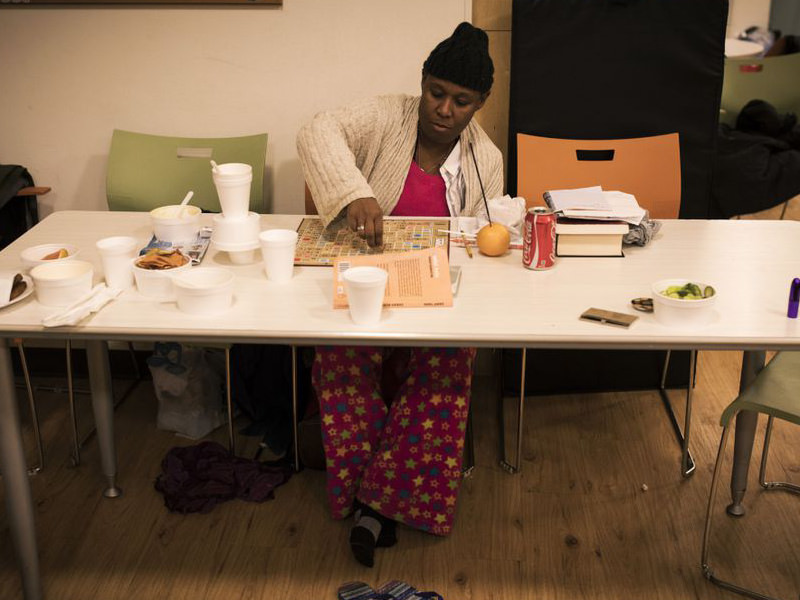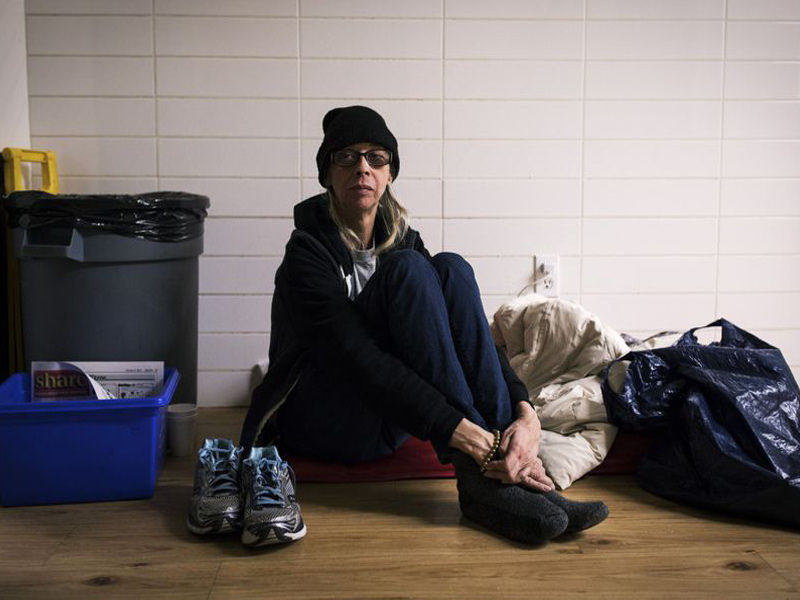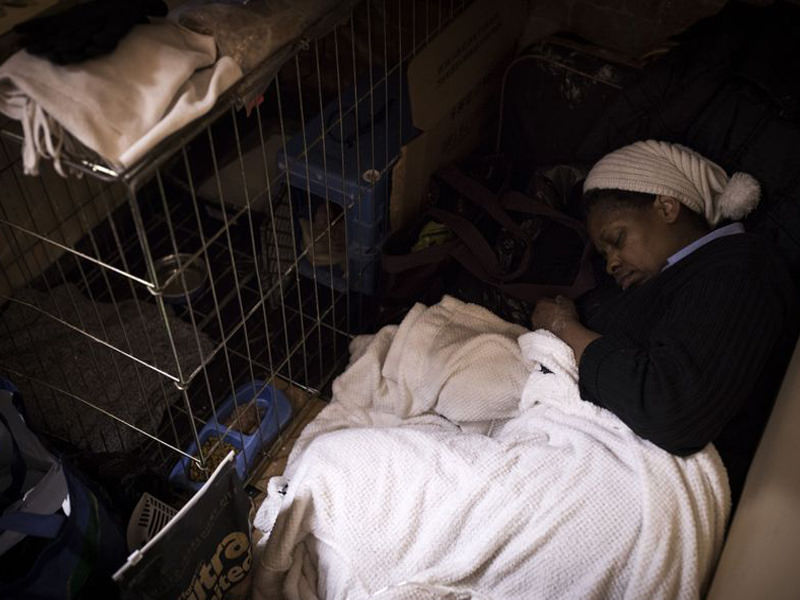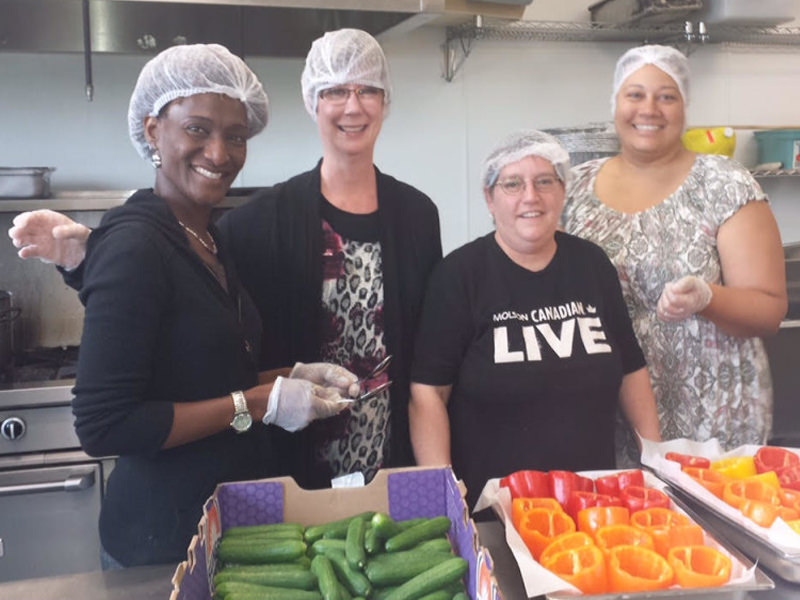|
By Carol Salinas Sistering is a community hub in which women are welcomed 24/7 and come in to seek support in any time of need. This agency has been supporting women for over 35 years in Toronto, providing diverse services such as housing support, learning skills, sexual and financial education, psychological and medical help. In this interview with VIBE Correspondent Carol Salinas discusses with the Executive Director of Sistering - Patricia O´Connell – everything about the women-only drop-in agency in Toronto. Carol: Could you tell me how Sistering started as a non-profit organization? Patricia : Over 35 years ago the provincial government of Ontario decided to close all of its institutions - so Psychiatric institutions - and people were supposed to receive services in the community. So they put all of these people out of help and the services never came. A little bit South of here, in Toronto, there were a lot of women who had been hospitalized just walking around the streets and living in boarding homes, so a small group of prominent women Torontonians started a little tea and cookies group in the afternoon at a local community centre and from there it grew and grew and grew and grew and now we’re a 24 hours a day, 7 days a week drop-in. Carol: What is the core concept of Sistering? Patricia: This organization has a very strong set of principles and values. It’s based on feminism, it's based on being a low barrier drop-in - which means that women whose behaviour may not been acceptable in other locations - can come here and that’s usually because of mental illness or addictions. We serve homeless women or precariously housed women and pretty much there is very little reason why a woman couldn't be here with the exception of physically hurting another person or damaging property and aside from that they can come here. We have a large program that is harm reduction based so we work with people with addictions, we have a lovely well-skilled harm reduction team. We also are what we call trauma informed, so we know that women…most women that come here have suffered trauma in their lifetime and so we understand the impact of trauma and work with women from trauma informed perspective. So those are the principles on which we're based and we feel really strongly about those principles; staff are trained on them and we try to enact them every day. Another big part of our model is that we're anti-oppressive, so we come out and work for them in anti-oppressive point of view. We are one of two 24 hour day 7 day a week drop-ins for women and we are not a shelter, so we don't have beds. We were funded, so the people can come and go throughout the day and night and now what’s happened in Toronto because we have a homeless crisis there is something like 9000 homeless people in Toronto. There is not enough shelter space, there is not enough housing, so what ends up is that the people sleep on the floor in this drop in. Carol: Could you tell me more about other programs or services that are offered within your organization to support women? Patricia: Another thing we do have here is a community advice council, so we have the local Business and Improvement Association, local businesses and local residents that come together once a month and try to help us deal with any problems we might have in the community. For instance, in the nice weather our women gather outside and they can be noisy and messy and people don't like that, so we come up with different ways of trying to prevent the women from bothering our neighbours. We don't have any outdoor space, there is no space at the back, we can't move up, so all we have is the street, so this organization helps us work with our neighbours. Carol: Who can access to this program? Patricia: Our definition of gender is a concept that has really expanded in the last couple of years, so we try to be as inclusive as possible in our definition of “woman”. "They are women, transgender, genderqueer women, gay, lesbian, and people that are non-binary are welcome to Sistering. In addition, we serve women from 18 and up to ladies that are in their eighties." Carol: Where and how can people access Sistering? Patricia : If someone wanted to come into Sistering, all they have to do is walking the drop-in door, we don't register people. People may tell us their name, they may not, they may use a different name, we do ask people to sign in when they come, but they don't have to. And if someone shows up and drops in they may want food, they may want to shower, they may want clean clothes and once someone comes here and talks to staff, staff will work with them on wherever they want. But if they don't want to work with staff, they don't have to, they can just come have their meals, relax, stay here, have coffee and once they ‘re ready to work on something maybe they want to try housing or need a psycho therapist or need a doctor then staff work with them those services. Carol: What facilities do you provide to women in Sistering? Patricia: In the drop-in we have twelve reclining chairs, so twice a day we have a lottery, so that people can try or have access to a reclining chair and then at night when it’s time for people go to bed, they get a mat and a blanket. We have a large food program, we have laundry facilities, we have clothing donations, we have psychotherapists, we have settlement worker, we have 4 doctors. We have three psychiatrists, a large harm reduction program and housing program, counselling program, staff that can help get ODSP or Ontario Works. We have a 4 person harm reduction staff and their role is to educate people on the use of alcohol and drugs, help them to use safely. We supply kits for people if they use heroine or smoke crack or whatever kind of drug they use, we provide male and female condoms, so people are sexually safe. We have a studio called Spun Studio where we teach people to crochet, to knit, to sew, and they can sell their products once they learn that skill. Carol: How can people in the community get involved? Patricia: We have a large volunteer program and so we have a very large food program, so we serve around five hundred meals a day, we have volunteers in the kitchen every day helping us prep food and cook food. We have volunteer fitness and instructors, yoga instructors, arts and crafts instructors, beading instructors, we have volunteers working in our administrator areas as well. We have a medical clinic with four doctors and three psychiatrists and the medical receptionist are all volunteers, so if someone wanted to volunteer they just contact us, let us know what they are interested in and the other kind of way we're always looking for donations of toiletries, sanitary products, and new underwear, new socks and as it gets colder what we're looking for are hats and mitts, scarves and coats, so if anyone has an interest we can put you to work. Carol: Do you remember a special success case of someone who rehabilitated with the support of your organization? Patricia: We have a few cases. We have one woman who came here as a participant and then she started working in the kitchen, washing dishes and then she started to prepare food and then she went to school and now she is a part-time chef here. We have another woman who's been here for 10 years and says that Sistering saved her life, actually a lot of women say that. She was in a bad shape when she started here. She got some help, she started also working in the kitchen washing dishes and then now she works 2 days a week in the kitchen unloading the food trucks that come in and she is really happy to work here. Carol: What are some of the challenges you have to deal with as Executive Director of Sistering? Patricia: I guess one of the biggest challenges is always funding, so we haven't had any increases in our funding here for over eight years and that makes it really difficult because inflation goes up, prices...our food budget has gone up exponentially. Thankfully, we have a wonderful fundraising team and they are excellent at getting us additional funds and those funds allow us to do really interesting and helpful things for the women. This summer we took them away to camp for a few days and we took them on a number of trips to Wasaga Beach and to Saint Jacobs, and Elora and Niagara Falls - so day trips, and then we partnered with an organization called Streets to Trail and the women are taken out of the city and go on hikes and they love it - just to get out of the city and be in nature for a day or longer. It is a wonderful activity for them so the funding is the big issue. Carol: Do you have any advice for people who are under these circumstances who want to approach Sistering? Patricia : Yes, I would say that if you want to approach us, to come in and you’ll find a very friendly ear, people will be very willing to help you. I have one story that will explain us. Shortly after I came to Sistering a woman came to my door and she said I'd like to talk with you I am too embarrassed to talk with you, but I need to talk with you. So she came in and she said she had left an abusive relationship and she had been sleeping in a McDonalds for three nights, she was tired, she was hungry and she needed help, but she didn't know what to do, so I went and I got one of our staff to come down and the staff put their arm around her and said let´s go get you a nice hot shower, some clean clothes, we'll get you lunch and then we’ll work on what we need to do. She was with us not for a long time and got on her feet and got some help. This experience stayed with me a lot, because it was shortly after I came here and the woman was so much in need, but she needed us, but she didn't want to need us. She needed us and we were able to help her get back on her feet and off she goes. Carol: Where is Sistering located? Do you have a website or social media that people can follow you? Patricia: We have two locations, one at 962 Bloor Street West, which is on Bloor between Ossington and Dovercourt and then we have another location in Parkdale at Cowan Avenue and Queen and it is open Monday to Friday from 9AM to 2PM and the people who go there are primarily seniors. Our website and our twitter and facebook account is @Sisteringto. We try to keep everybody informed. Carol: What is next for Sistering? Patricia: Sistering is always at capacity or higher and the city of Toronto is opening up a new women shelter and Sistering has applied to run it. It's on Davenport at Avenue Road. We have applied and the city is announcing on October 1st who will get to operate it and if we are successful then we will take the Sistering drop-in model and apply it to the shelter, so it will be low barrier harm reduction based, trauma informed and anti-oppressive. Women would be able to come and go as they want … throughout the night, there won’t be curfews. We'd have space for them to come in and have a coffee or sandwich and there would be real beds to sleep in and we'll have doctors and psychiatrists again and psychotherapists. All the kinds of resources we have here we’ll have there. Sistering is a place in where women have the opportunity to learn different skills, find a job, and get back on their feet but it is also a special place where women can find the freedom to find themselves, to take a breath, heal and learn something useful that will help them to their life.
|
Recent Posts
|
|
GET THE APP!
Listen to VIBE 105 anywhere you go!
|
OUR STATION
|
TUNE IN RADIO
|
STAY CONNECTED
|
Copyright © 2021 Canadian Centre for Civic Media and Arts Development Inc. Except where otherwise noted, presentation of content on this site is protected by copyright law and redistribution without consent or written permission of the sponsor is strictly prohibited.

